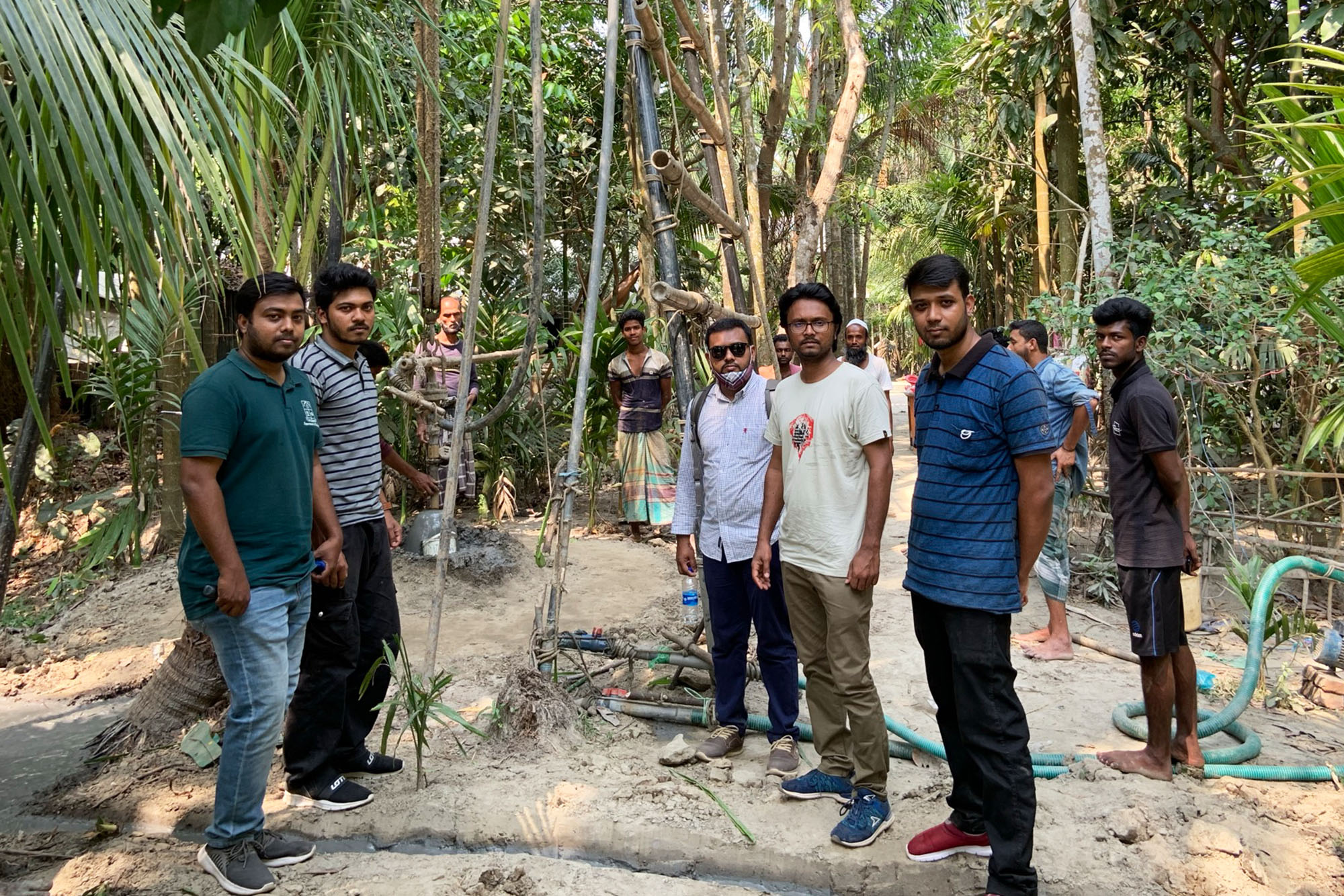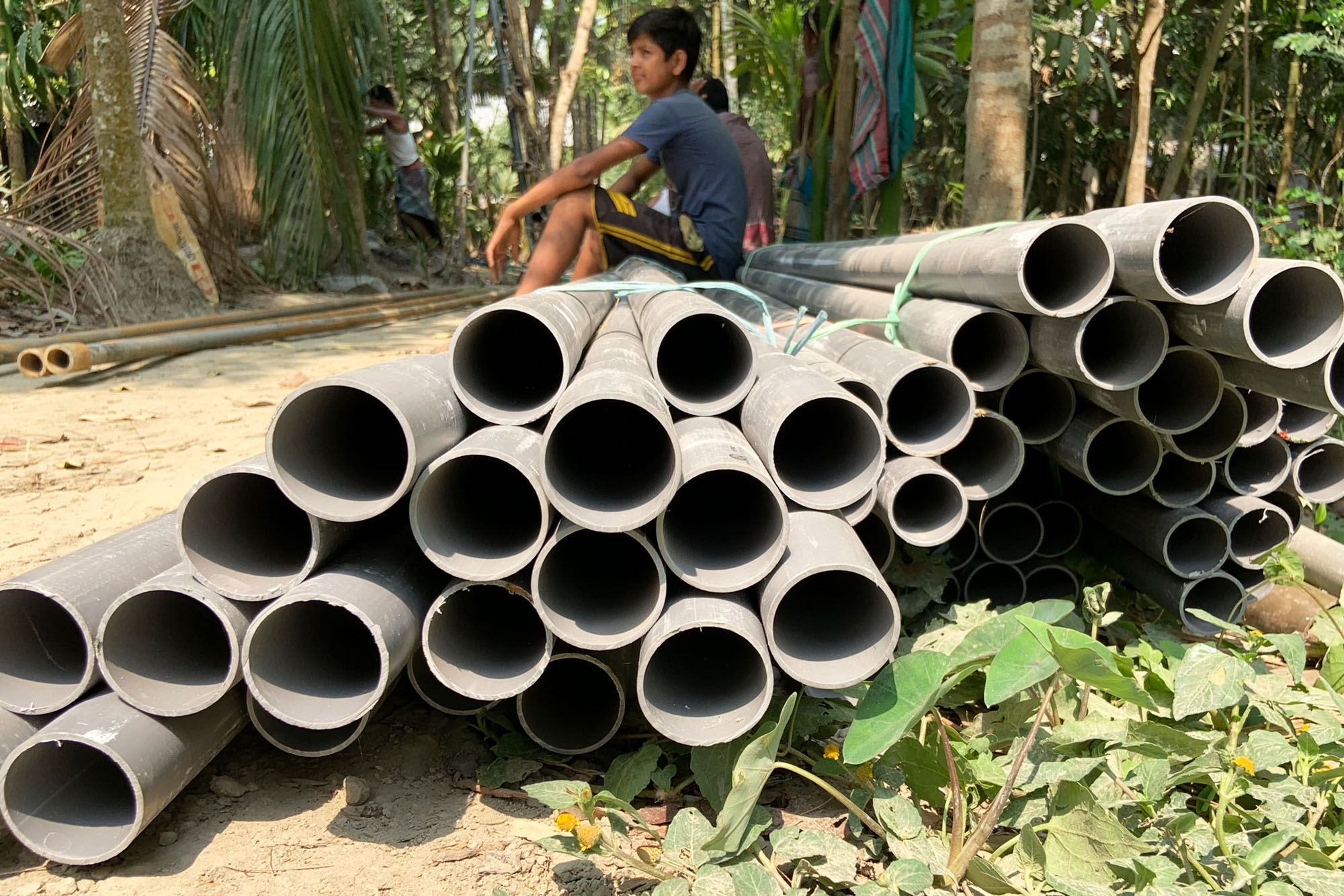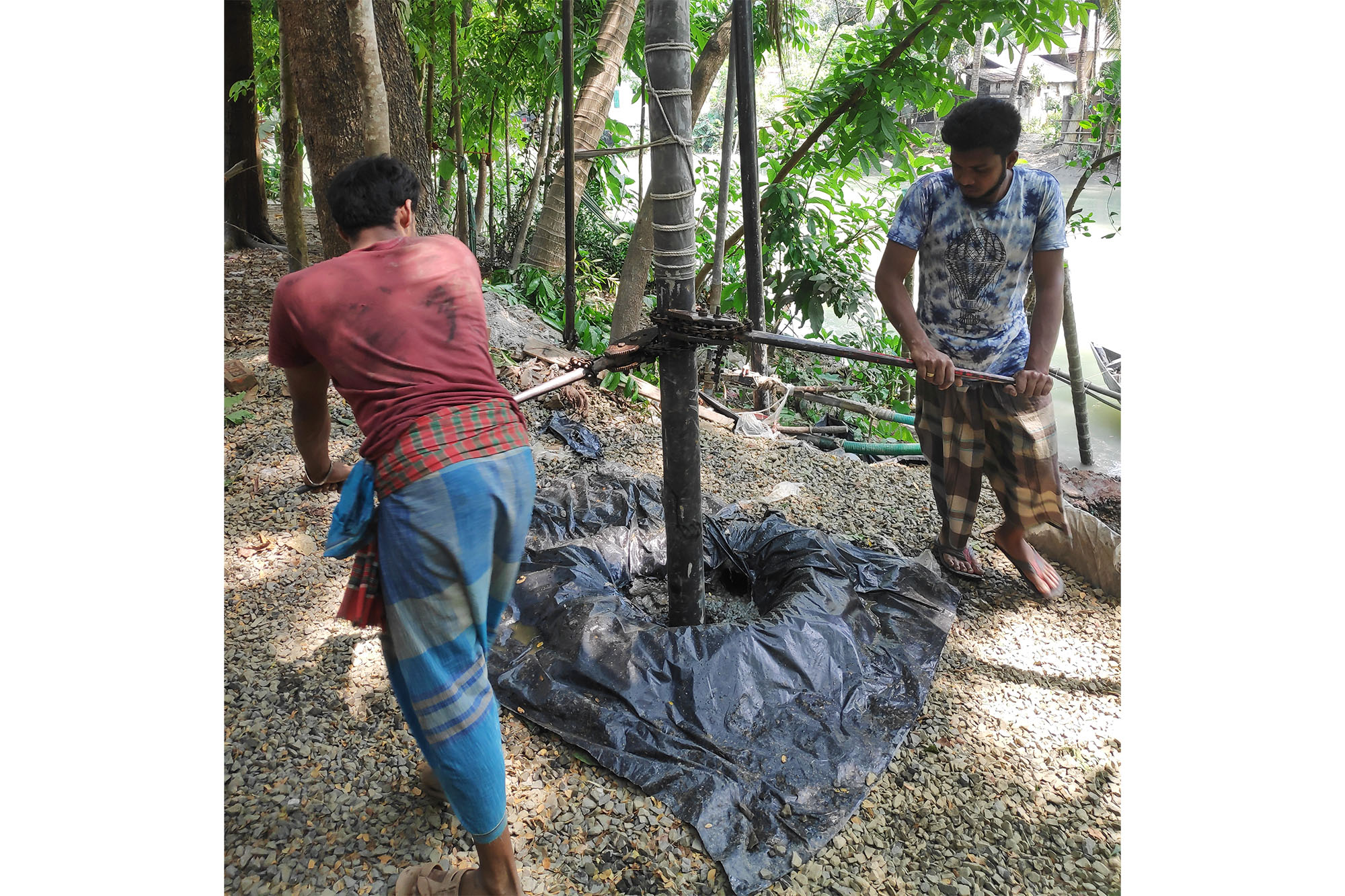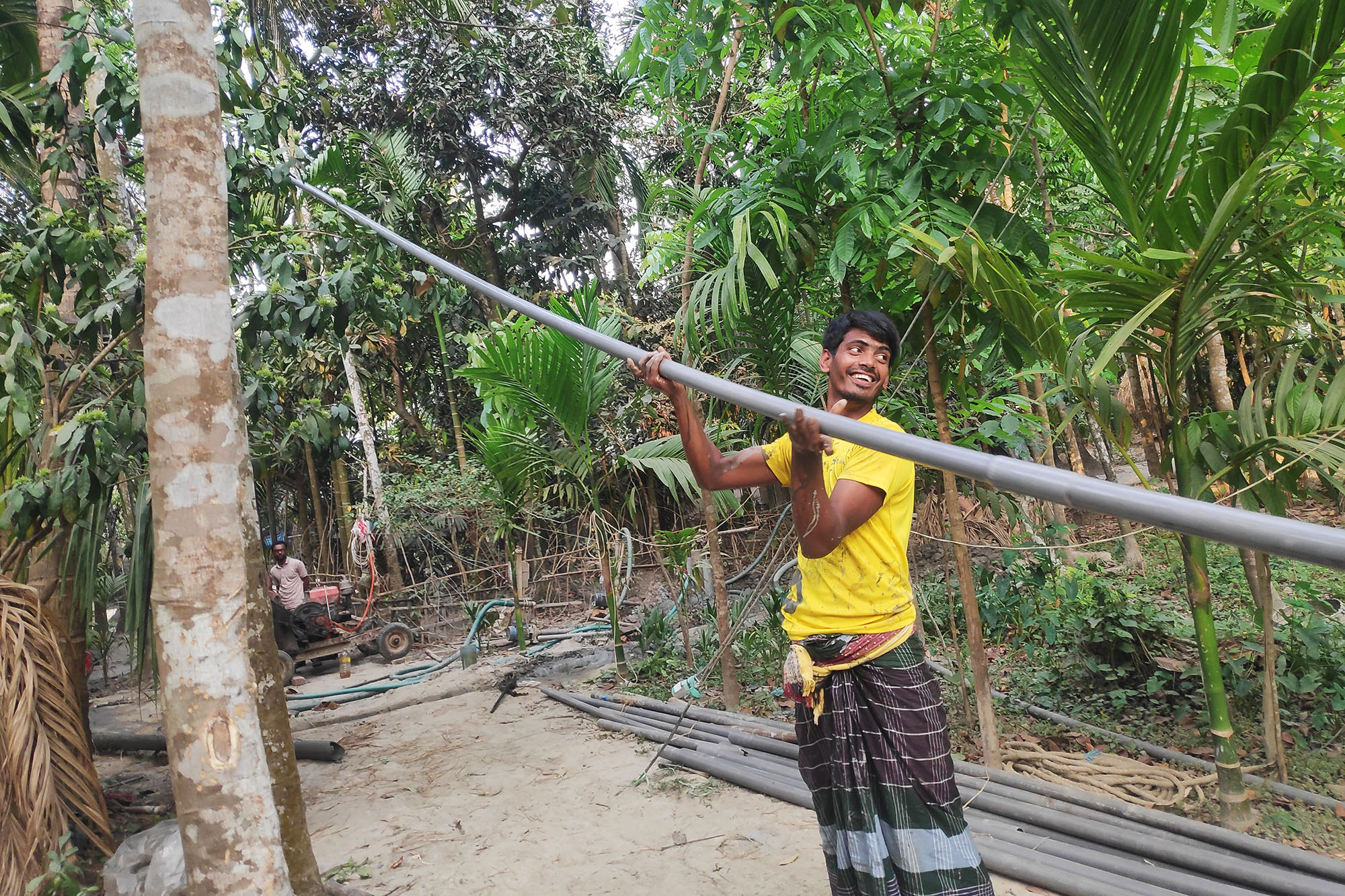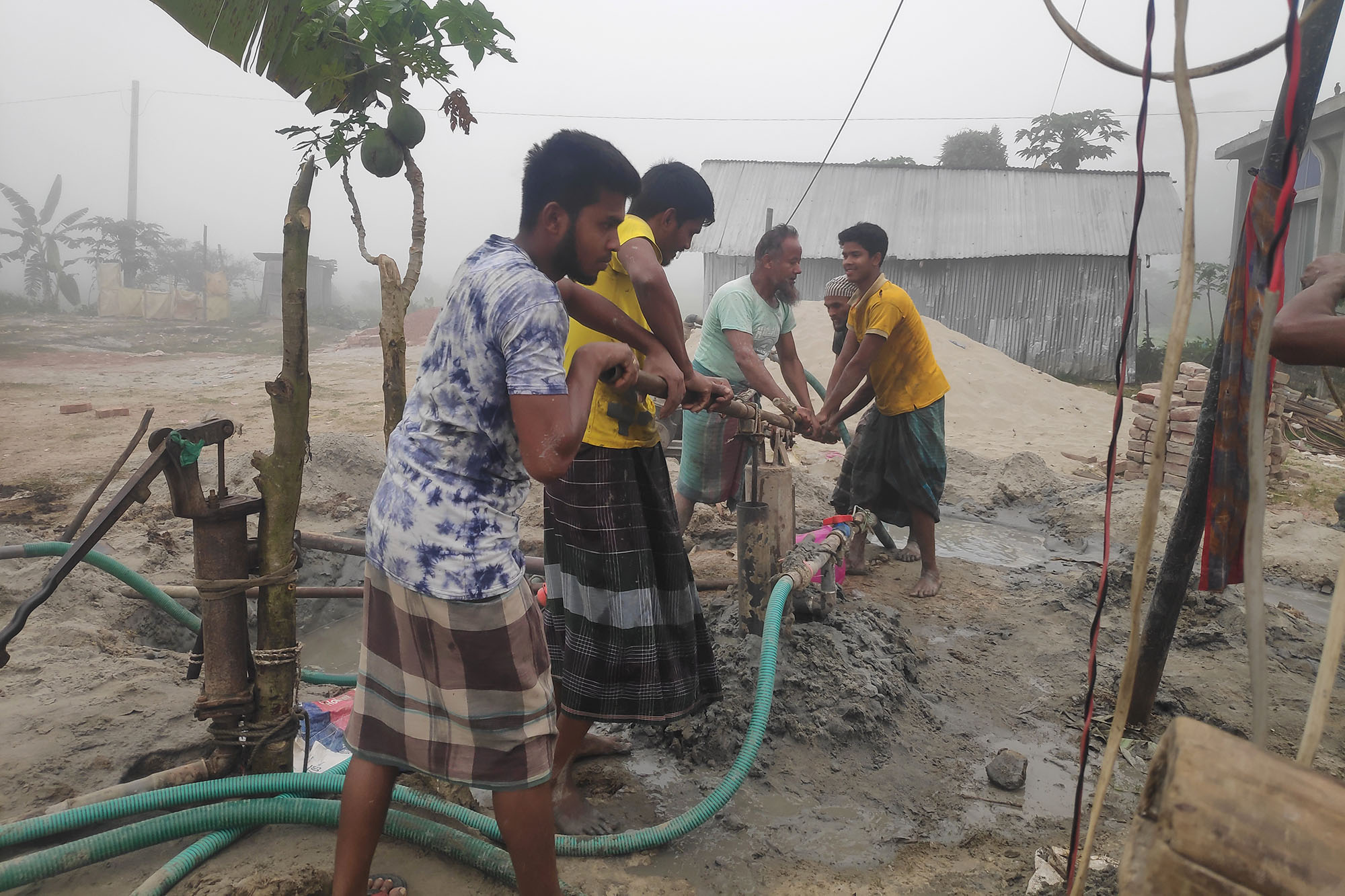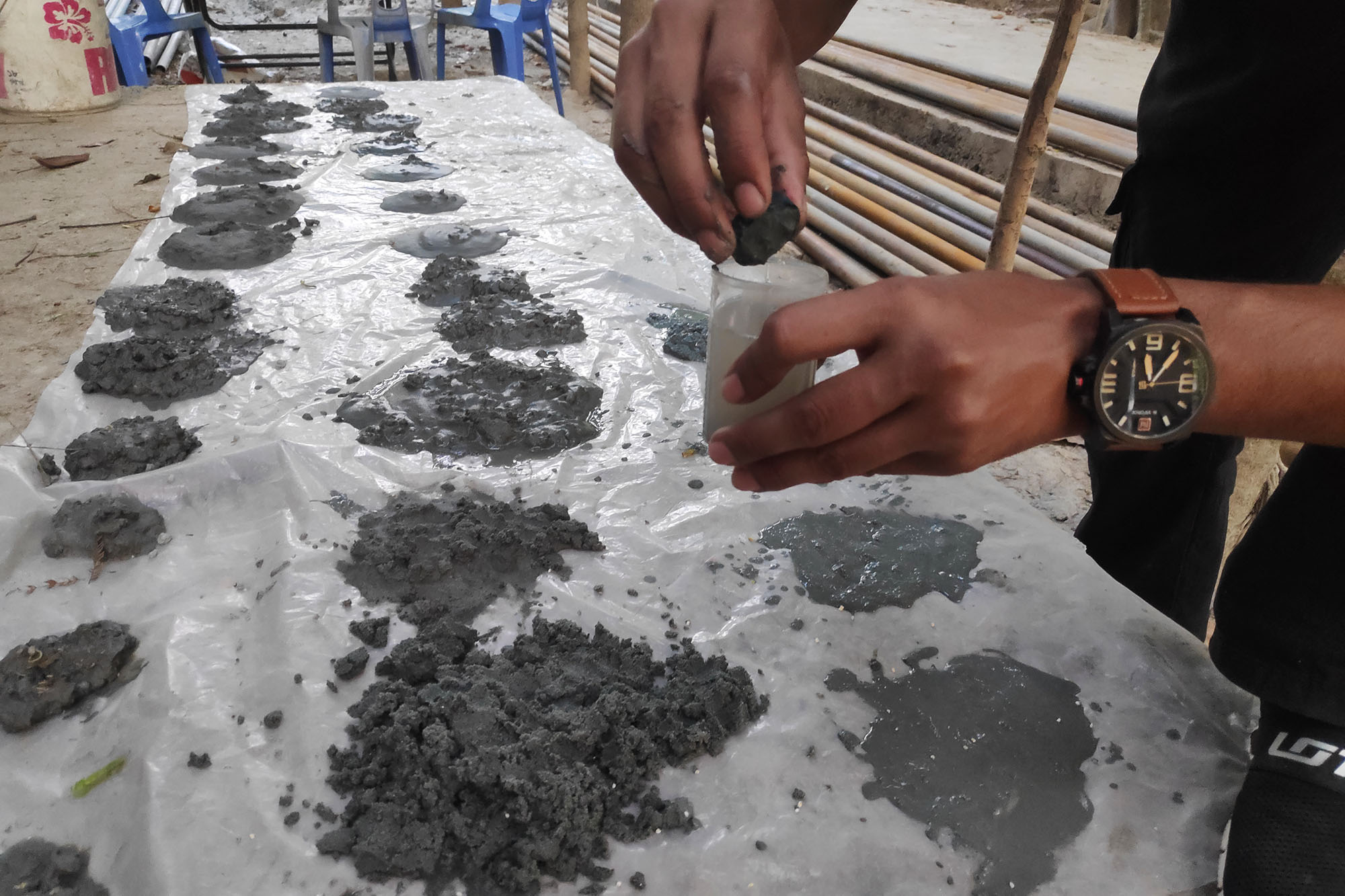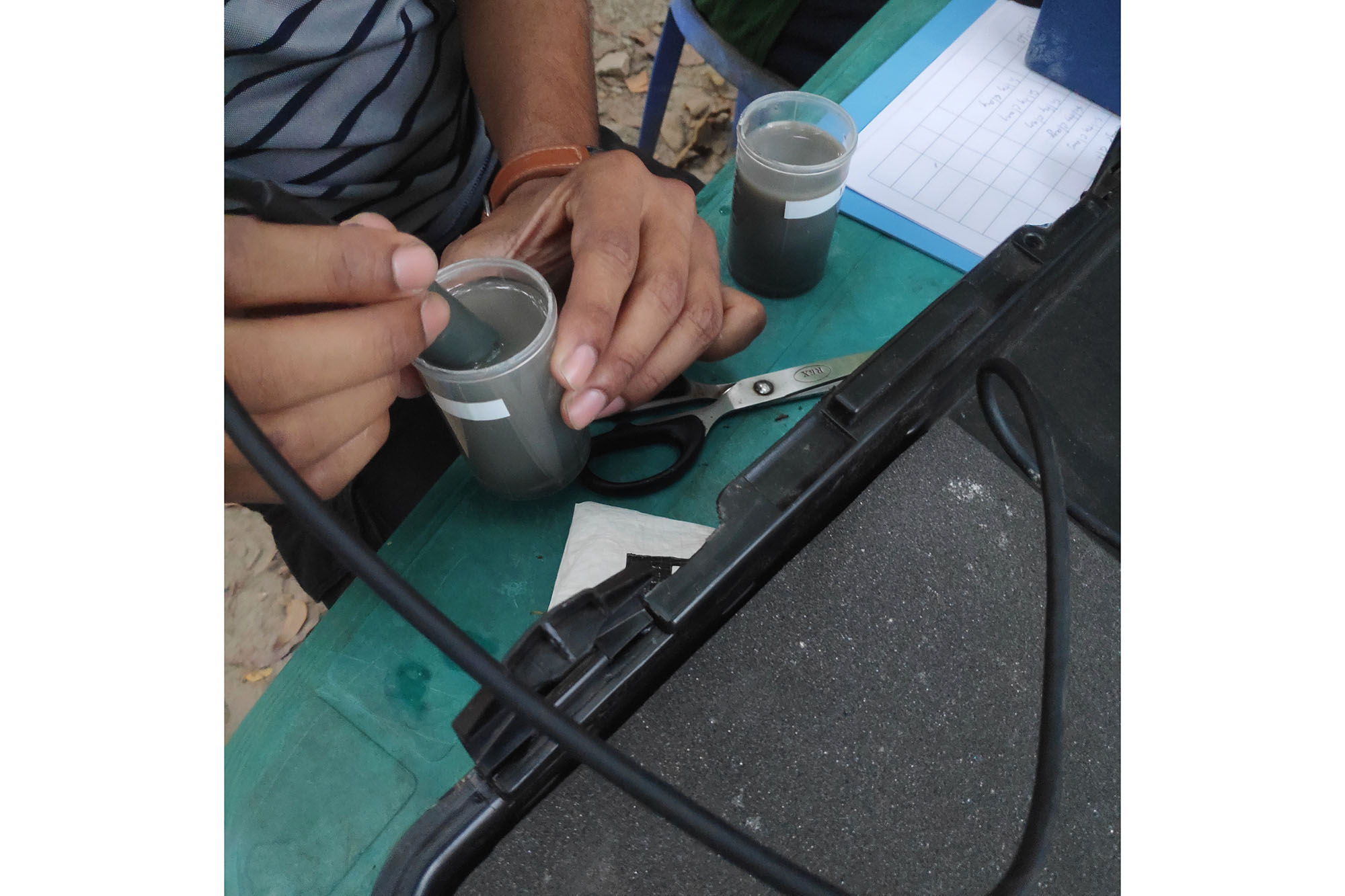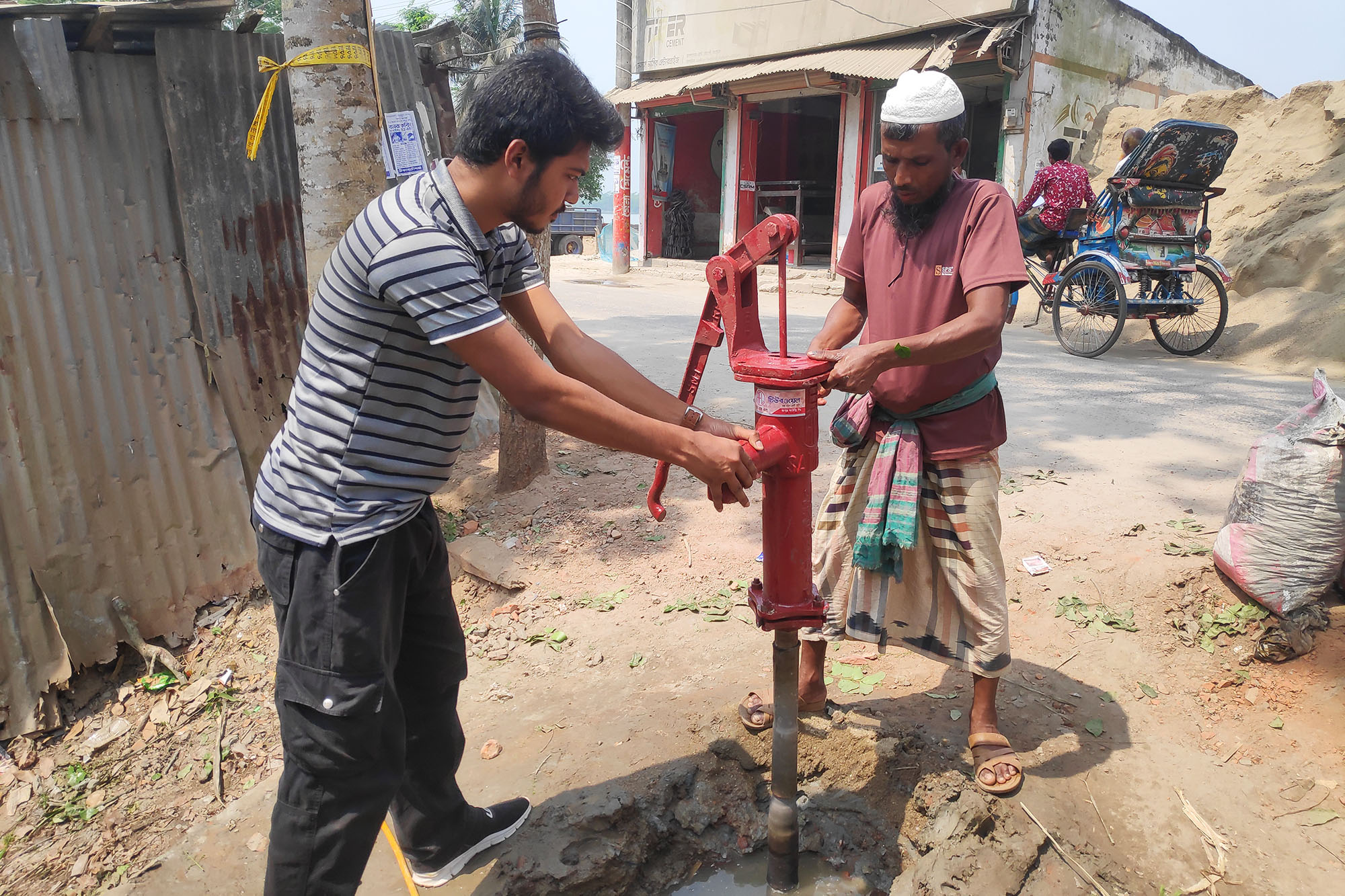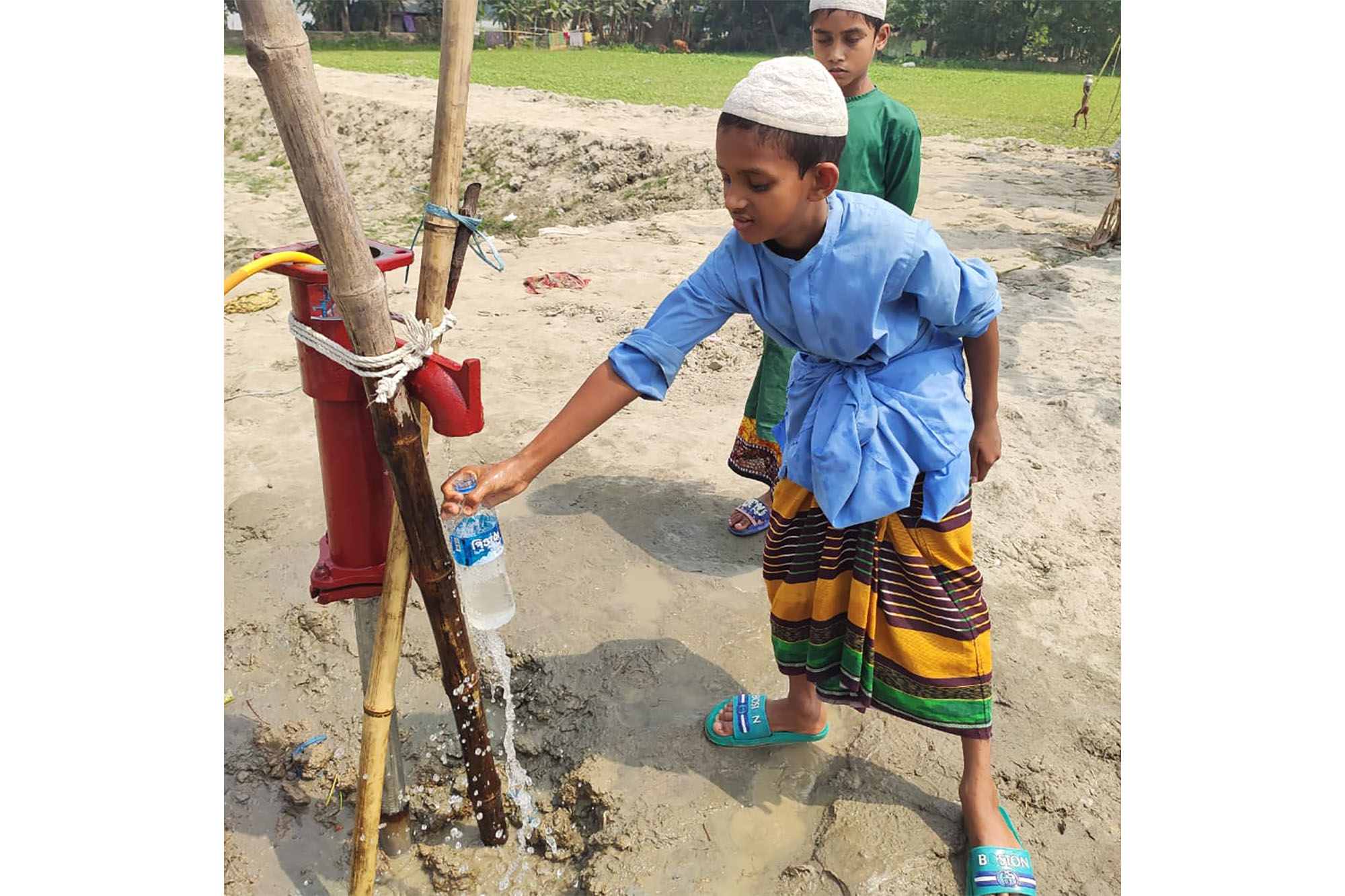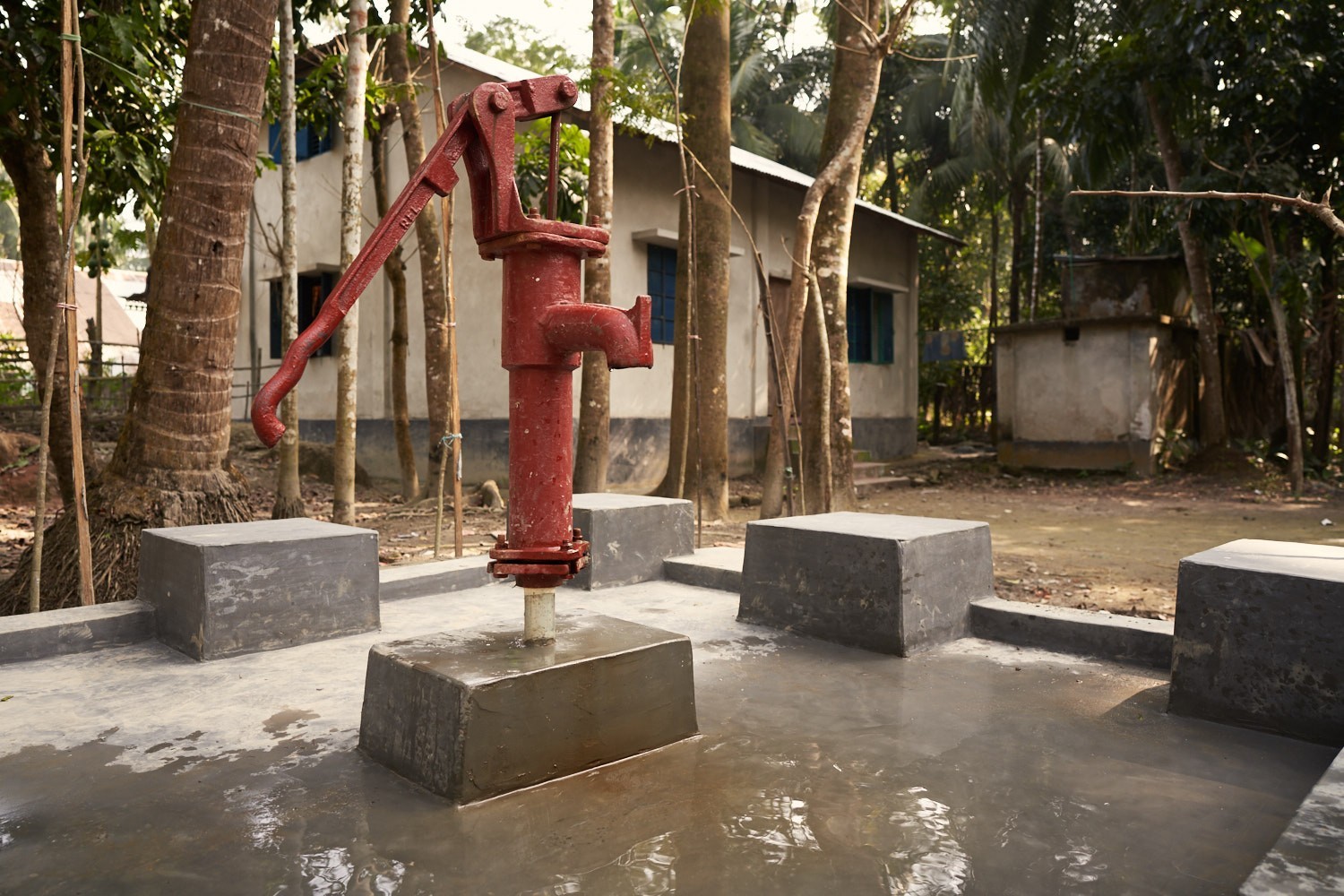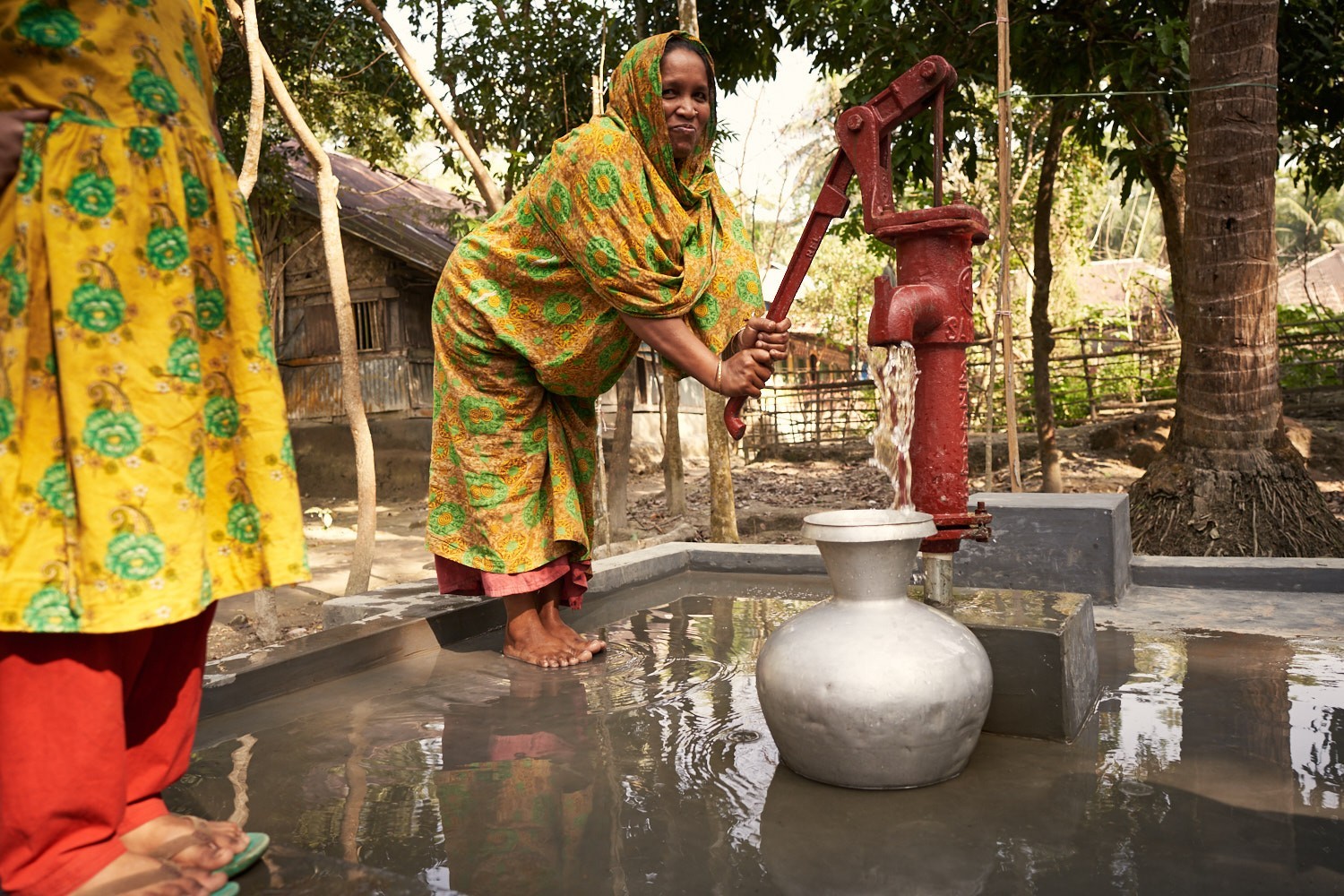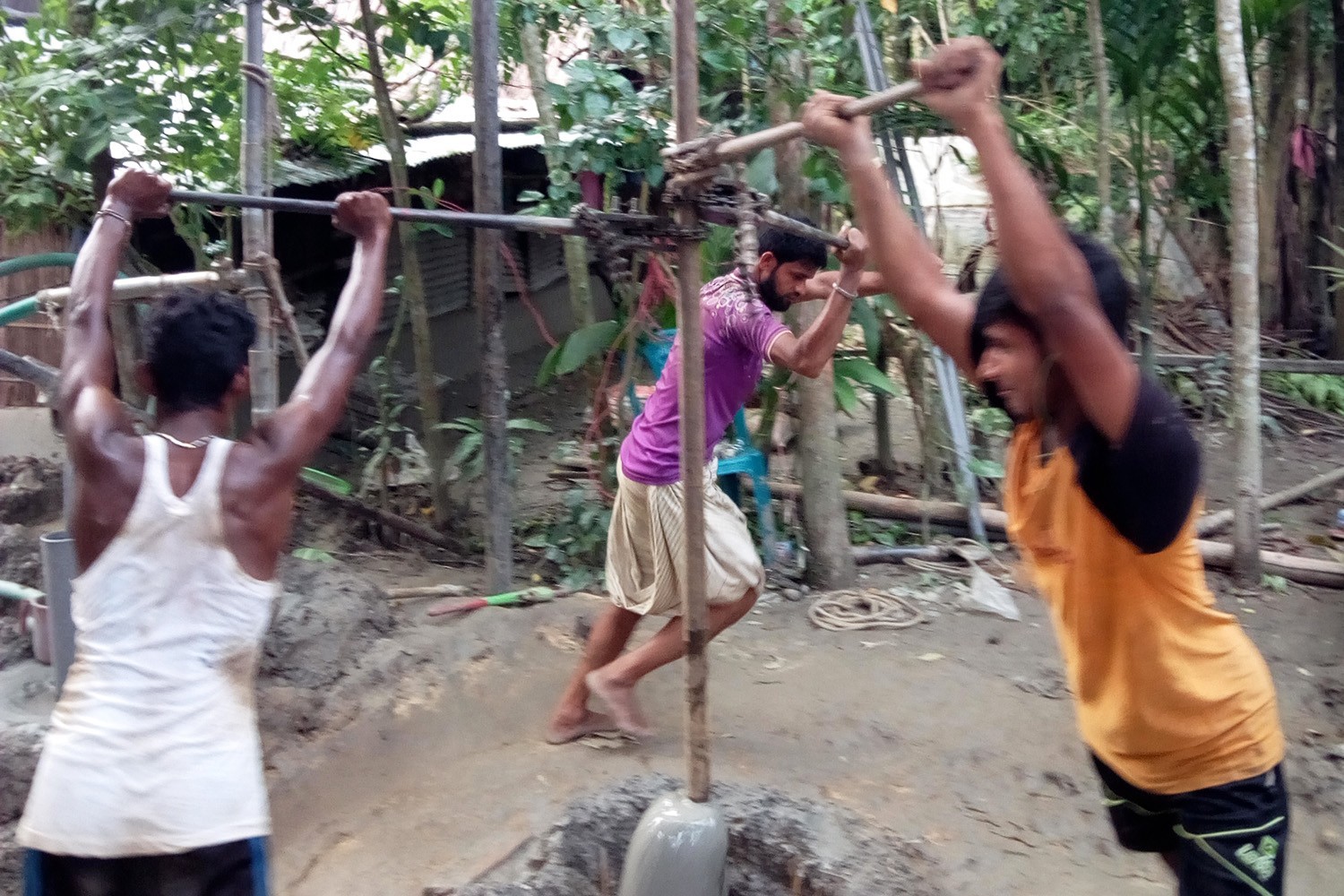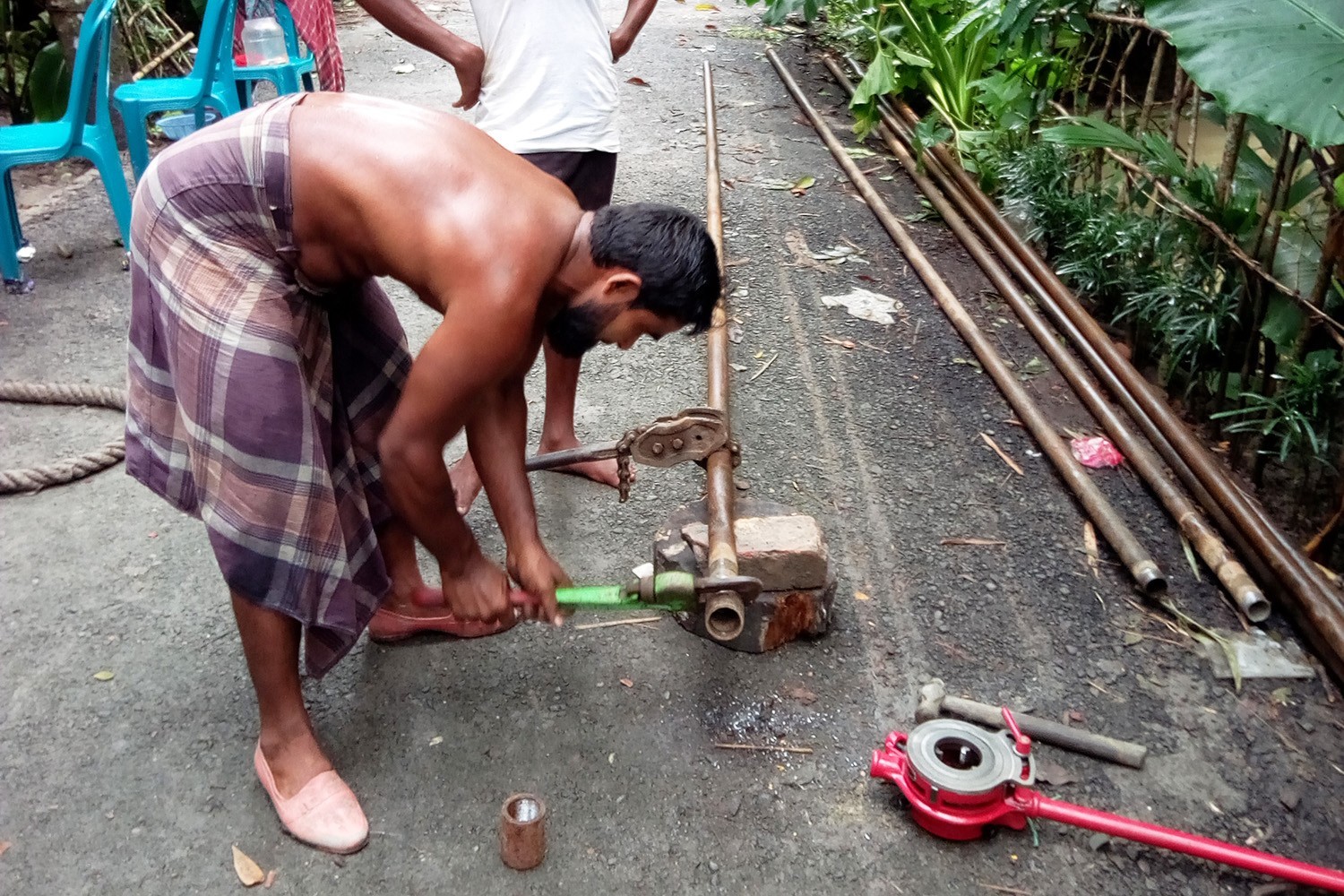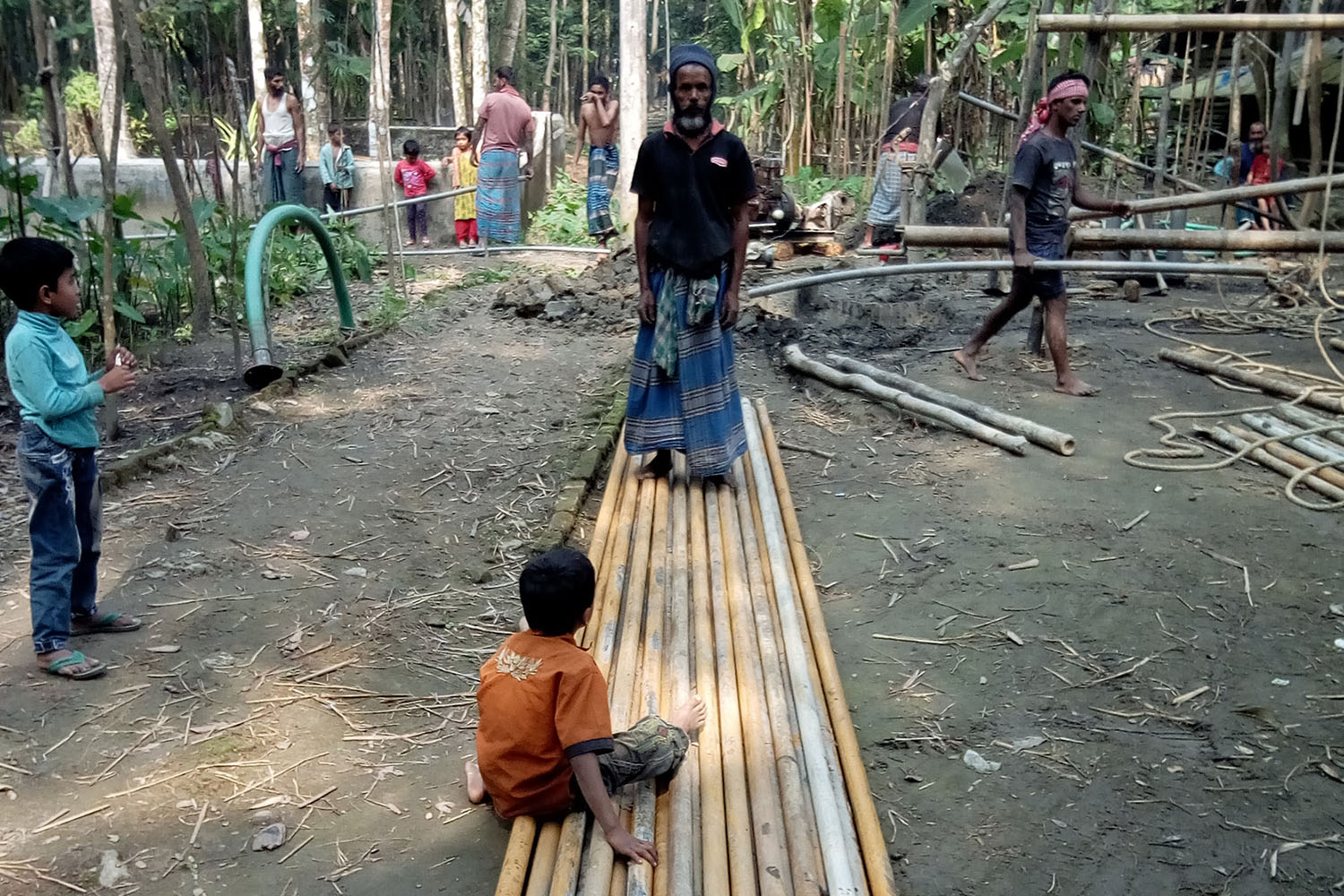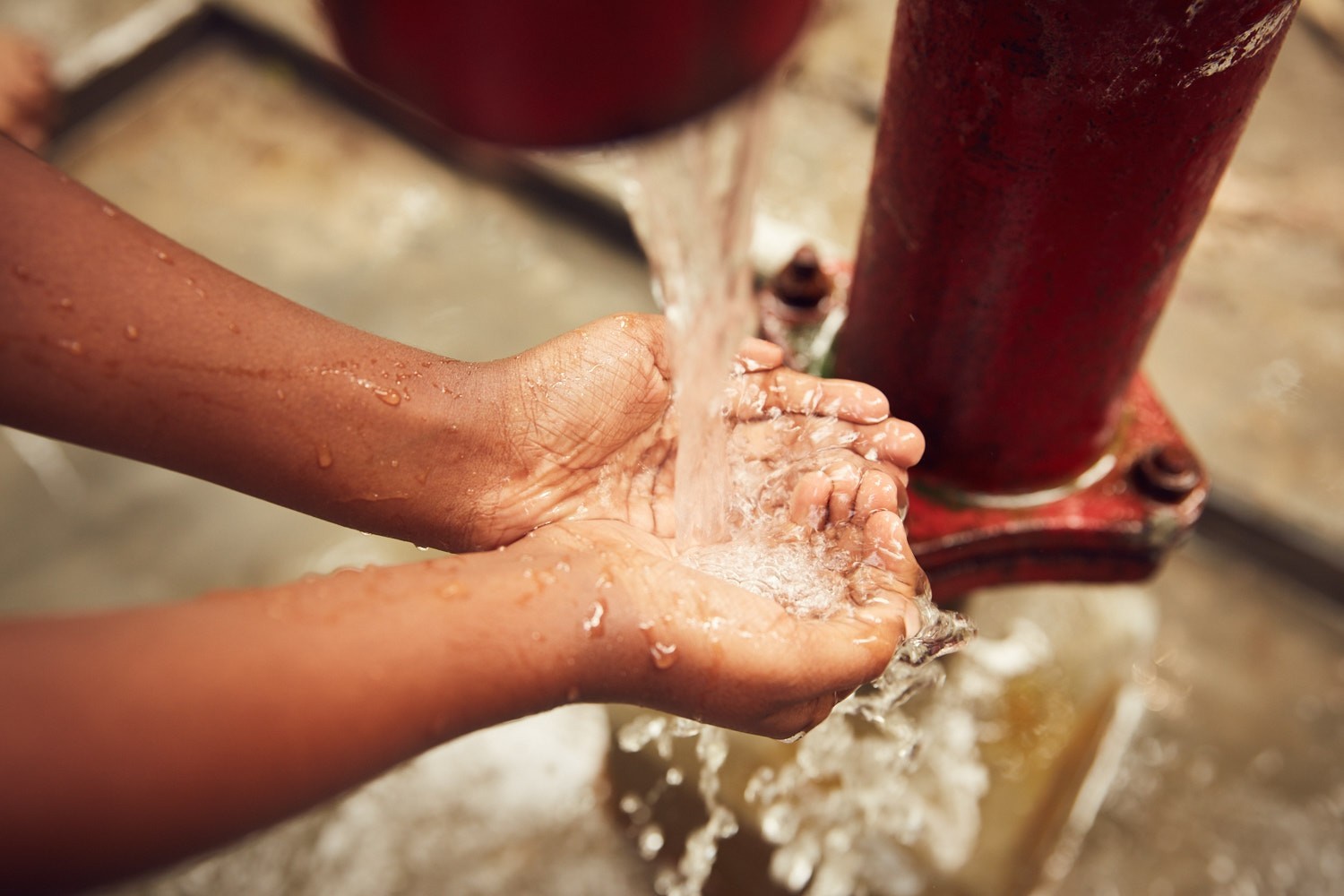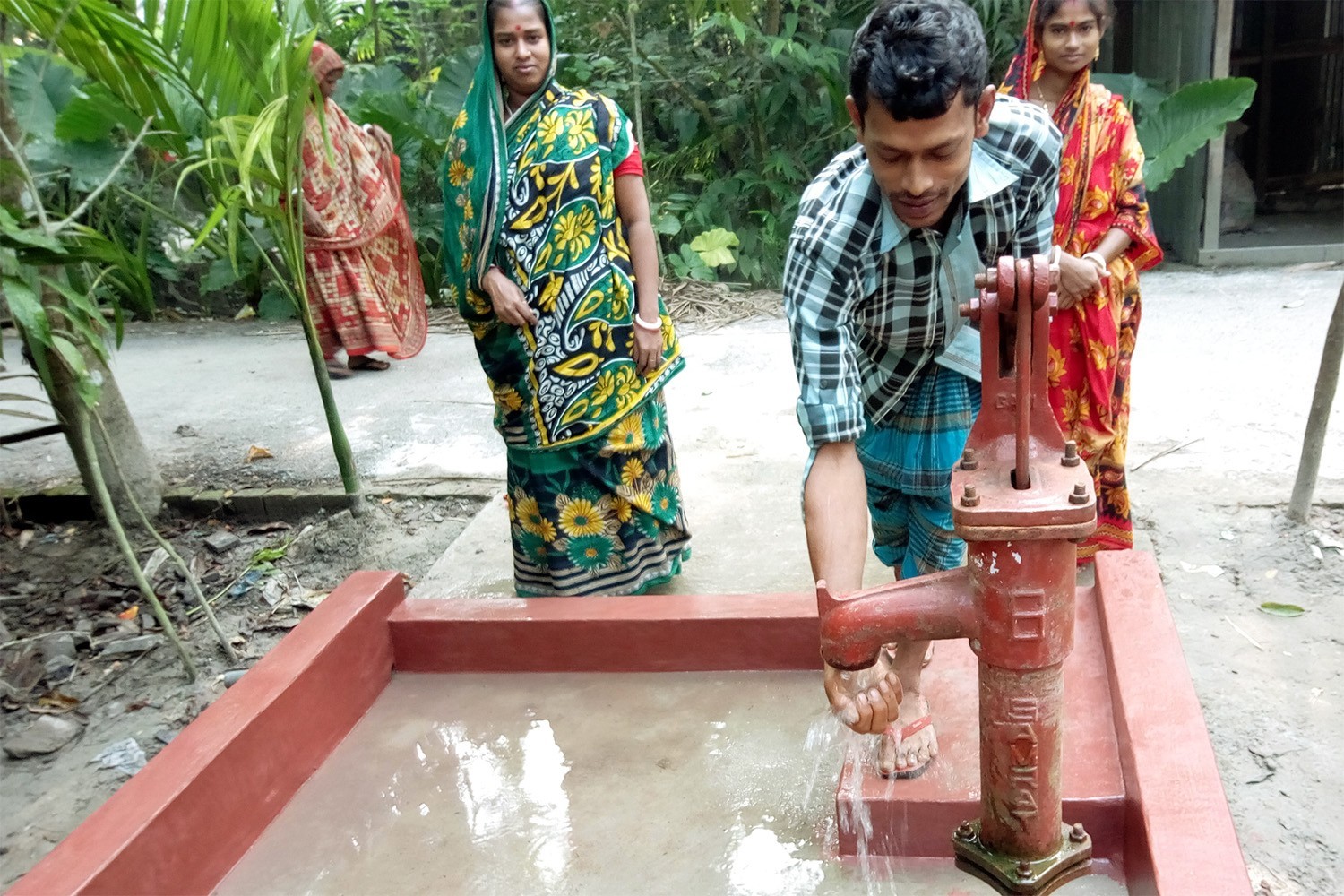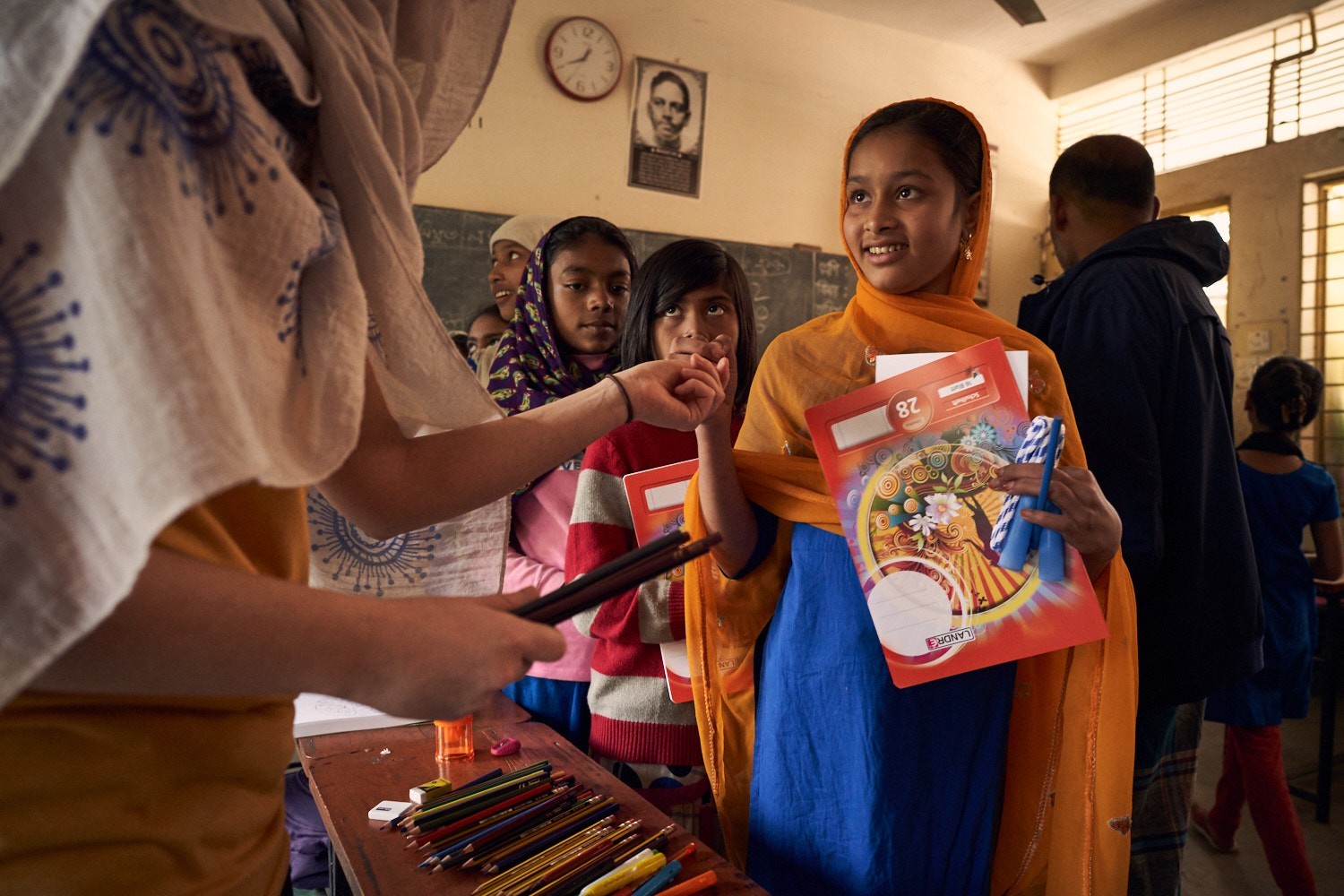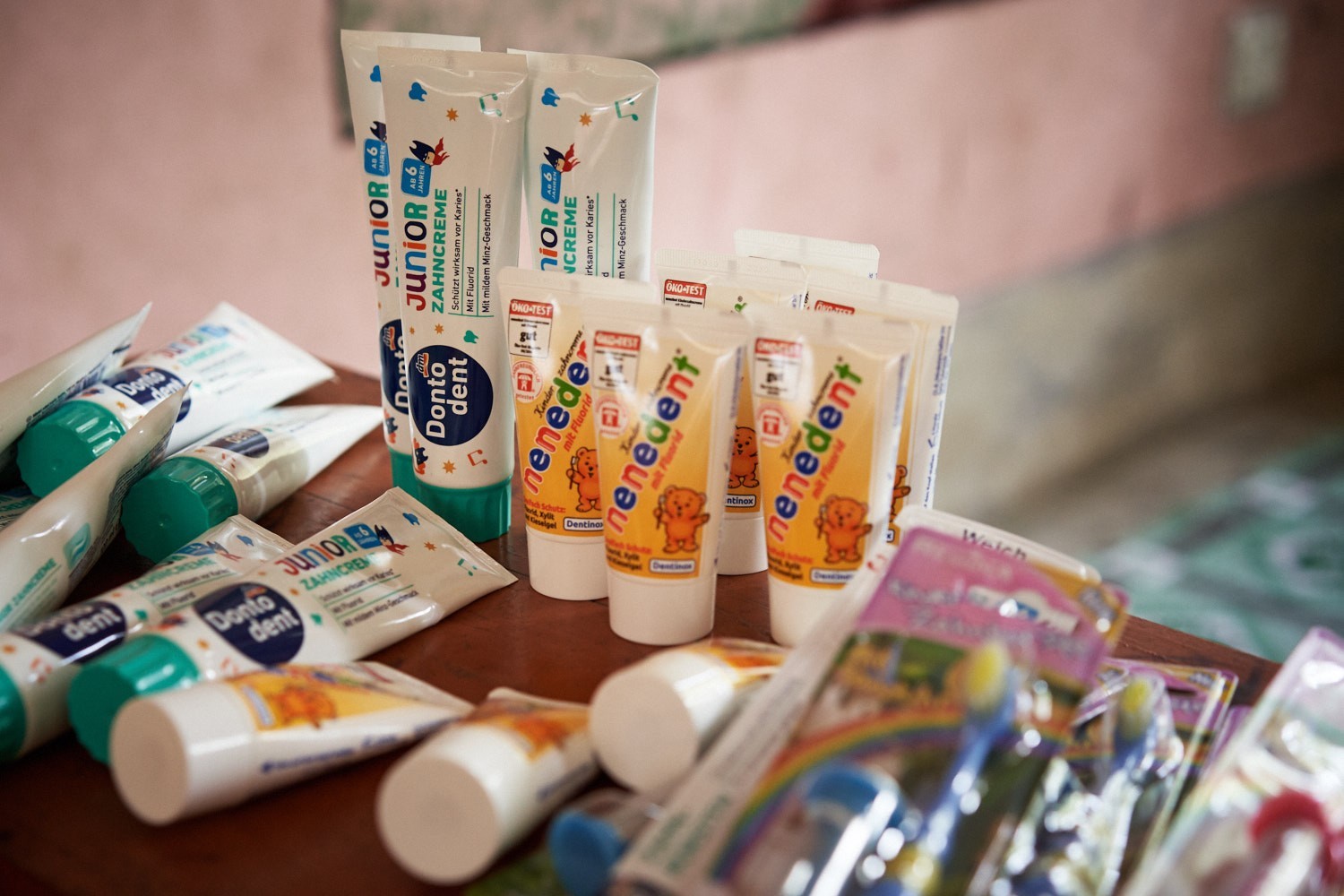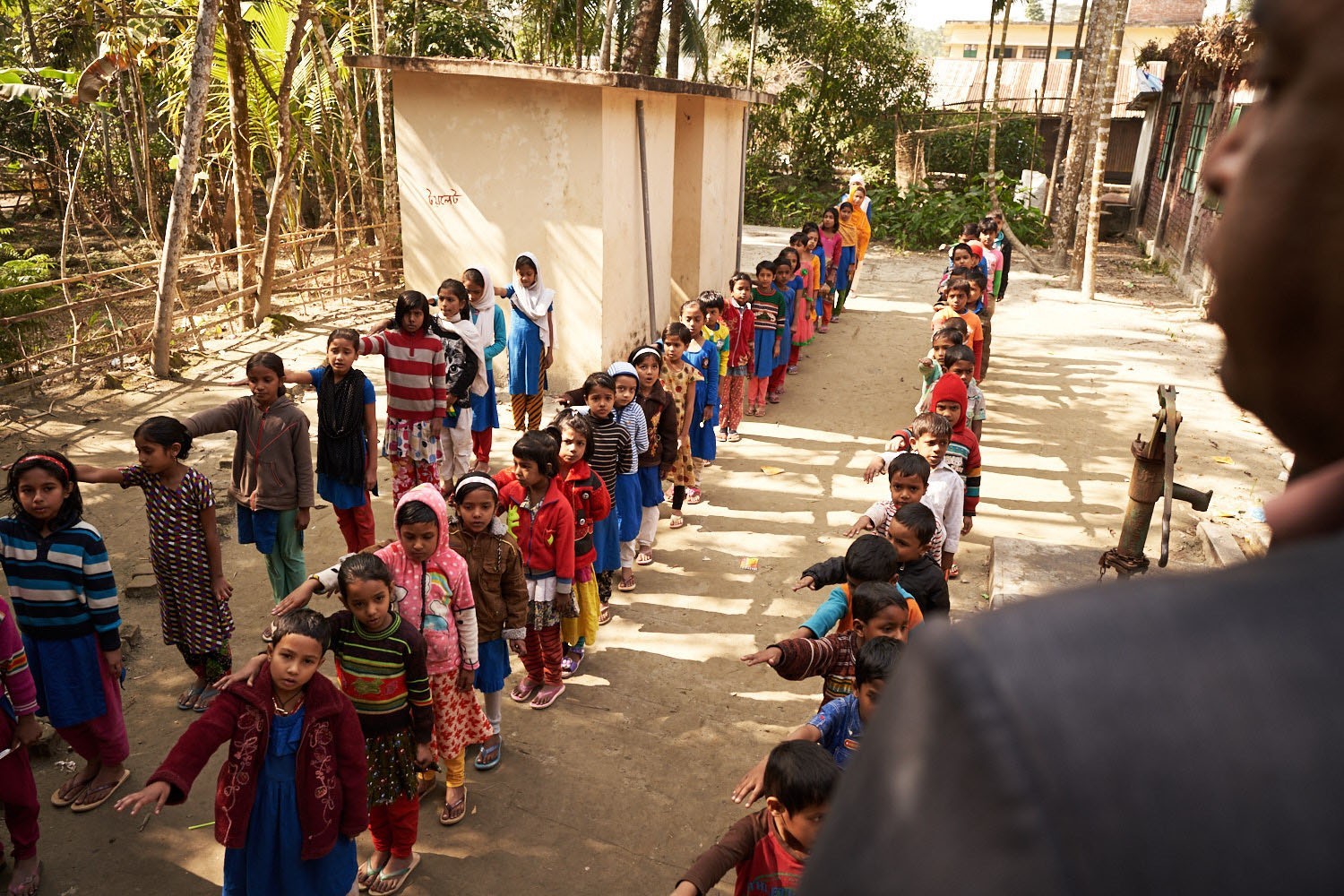THE PROBLEM
In the Ganges Delta, much of the upper groundwater is contaminated with arsenic. These are natural arsenic deposits in the soil and not a man-made problem. Since most wells were unknowingly drilled to insufficient depths beginning in the 1970s, the WHO estimates that there are between 35 – 70 million chronically poisoned people in Bangladesh today. Chronic arsenic poisoning (arseniosis) first eats away at the skin, can lead to various tumors as it progresses, and can eventually lead to death.
THE SOLUTION
– Project in 2021 –
COOPERATION WITH THE UNIVERSITY OF DHAKA
Together with the renowned professor Dr. Kazi Matin Ahmed from the University of Dhaka (Department of Geology), we have initiated a collaboration. Based on scientific data and analyses, Dr. Kazi Matin Ahmed and his students have created a kind of map to organize the construction of new wells in the country in a targeted manner. In this way, old wells are promptly replaced by new deep wells and new wells are built where they are most needed.
We bear the costs incurred for the construction of these deep wells. The wells are built at central locations in the village so that as many people as possible have access to them. The construction work is organized by Dr. Kazi Matin Ahmed and carried out by local companies. Afterwards, the students test the new deep wells for proper installation. The students bring the knowledge they have gained back to the faculty of the university as part of their work.
Originally we wanted to start with the project work already in 2020, but the Corona pandemic interfered with all of us. We were all the happier when the first 6 deep wells were constructed in the spring of 2021. Subsequent laboratory tests showed no elevated levels of arsenic and salinity. Even though the pandemic means that not everything is running as smoothly as we would sometimes like, we are very pleased with the start of this cooperation, which we hope will continue for a long time to come. Further deep wells are already being planned.
– successful Projects since 2016 –
MORE DEEP WELLS FOR SAKRAIL
Thanks to your financial contributions and the active support of our friends in Bangladesh, we have financed the construction of several deep wells in the village of Sakrail (Barisal Division) since 2016. Our coordinator on site, Nannu, has searched for suitable places together with the villagers and also helped to organize the construction work on site. In order to check the results, we traveled to Bangladesh ourselves, took water samples and had them analyzed in the laboratory in Germany. The concentration of arsenic was always below the limit of 10μg/liter – WHO limit for arsenic in drinking water. Only the iron value was above the limit value of the German drinking water ordinance. However, the limit for iron results predominantly from the restriction for the use properties of water, such as the deposition in pipe systems. The WHO does not consider a limit for iron necessary due to health concerns.
During our project trips, we also took water samples from existing wells and had them analyzed in the laboratory. The laboratory analysis of a well in the Hindu community showed significantly elevated levels of manganese. This can, if taken continuously, cause serious illness. Therefore, we decided to replace this well with a new deep well. Construction was completed in November 2018 and in March 2019 we were able to have a water sample from the new well analyzed. The laboratory analysis showed that the manganese concentration was well below the limit, so that there is now no longer any danger from the well water.
Thanks to donations in kind, we were also able to provide material support to the local elementary school in Sakrail. In addition to stationery and small toys, we also brought toothbrushes, toothpaste and other hygiene items and conducted hygiene training together with the teachers.

